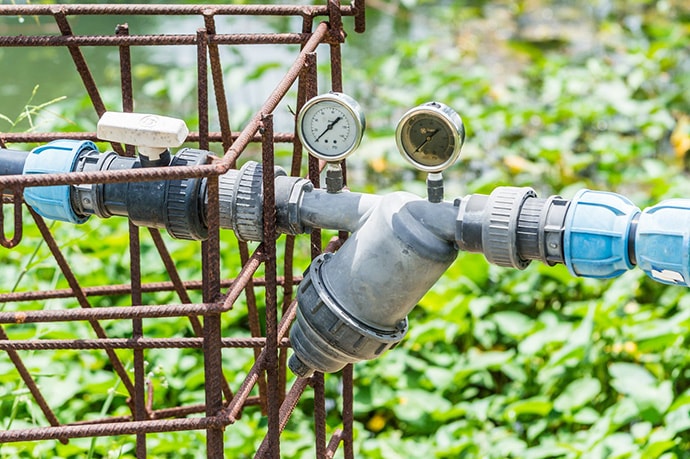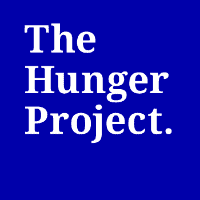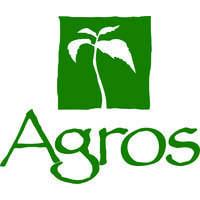Rebuilding Agriculture for Growing Hunger | Sector Innovations in the Wake of Climate Change
By Aneesh Chatterjee

Water irrigation valves on an African farm. Photo: Toodlingstudio/Pixabay
The global hunger crisis is irrefutably linked with rampant climate change, where increasingly turbulent and destructive weather events contribute to growing challenges in the agriculture sector. Rising global temperatures and sea levels lead to droughts, unpredictable rain patterns, floods, and other extreme weather events, leading to widespread displacement of populations and damaging the durability of global food production systems. NGOs worldwide work every day to develop and implement versatile solutions to the growing impacts of climate change on the agriculture industry, and on food access as a whole.
The following GWA members are active in developing a robust response to climate change affecting agriculture, investing in innovative solutions to build an adaptable and sustainable future for food production.
Leading technological advances
Broad-spectrum digital innovation is vital to the deployment of solutions for climate change. Microsoft’s AI for Earth initiative is leading digital innovation in climate change, with 950 projects deploying 20 solutions across the world, working with 50 established partners. Their premiere cumulative work, the Planetary Computer, has built an elite and comprehensive database for climate data across every sector of study, an invaluable tool for any enterprise seeking to pioneer new solutions for the climate crisis and its impact on world hunger.

At a more focused scale of operation, DE Design + Environment Inc. has designed multiple projects to simulate and understand the complexities of climate change risks. Their agricultural risk maps for the Inter-American Institute for Cooperation on Agriculture, built simulations and conducting risk analysis for environmental disasters in the focus regions of Guyana and Trinidad and Tobago. DE has also built the TroFCAA (Tropical Forests and Climate Change Adaptation) project, analysing climate change risks posed in Africa, Indonesia, and Central America. The TroFCAA initiative was commissioned by the Centre for International Forestry Research to understand the best ways to develop climate policy, specifically to implement in Costa Rica, Nicaragua, Honduras, Mali, Ghana, Burkina Faso, and Indonesia.
![]()
Heifer International, in partnership with Texas A&M, Engineers Without Borders, and the Milwaukee School of Engineering, spearheaded several innovative strategies to bolster the efficacy of cardamom farms in Guatemala. Deemed a fairly profitable but vulnerable crop, cardamom farmers are at odds with pests that can reduce crop value by up to 70%, and inefficient drying methods for their harvests.

The initiative developed solar-powered industrial drying units that call for smaller cardamom batches while drying, improving both crop yield and reducing environmental impact – in addition to introducing organic fertilizers and pesticides. Heifer has also taught simple preservation techniques in Honduras, such as using candles to remove the oxygen from bean storage silos, extending their longevity. Heifer Kenya has utilized technology to a great extent by implementing digital monitoring solutions for dairy farmers. Partnering with Farming Tech Solutions Ltd., Heifer provided farmers with access and training for the DigiCow Dairy app, through which they can share knowledge in chat rooms, schedule veterinary checkups for cattle, and engage with other virtual training opportunities.
The importance of reuse
Recycling waste material is an essential pillar of sustainability, as some members demonstrate through their projects. Heifer promotes the importance of recycling as a crucial step toward agricultural resilience. Working with farmers across the world, Heifer teaches pit composting and vermicomposting to revitalize and enrich soil, and the utilization of dung and water in biodigesters to create biogas, a methane-based clean energy source usable in cooking. In the Indian state of Bihar, for instance, the distribution of biodigesters via Heifer’s partnership with Sistema.bio has improved agricultural efficiency, reduced emissions from conventional fuel usage as well as from discarded animal waste, and drastically lowered household expenditure on conventional fuel.

The Starbucks Foundation also sees the importance of recycling. With an announcement of a $10 million investment in Circular Services, the largest private recycling enterprise in the US, the goals of this investment are to reduce the shipping of recyclable material to landfills and redirect them toward use in consumer products, packaging, electronics, and other sectors. Partnering with Nestle, PepsiCo, Microsoft, SK Group, Brookfield, Unilever, and the Partnership Fund for New York City, the Starbucks Foundation is contributing to a total investment of nearly a billion dollars in Circular Services to reduce landfill waste and redistribute recyclable materials, a significant step toward a more sustainable future.
Instruction and accessibility
Teaching vital skills and providing access to resources for farmers is essential groundwork for building a sustainable future for agriculture. Strengthening capacity for climate change resilience has been a priority for The Hunger Project (THP). Their approach includes sustainable farming, promoting access to modern agriculture technology, raising awareness of climate change and the necessity to adapt, and driving reforestation efforts to build back ecosystem resilience.

Across Africa, THP has built community farms that teach composting, techniques for increasing crop yield, rebuilding soil fertility, and other essential agricultural skills for local farmers. By providing training and credit, communities are empowered to invest in sustainable and resilient farming practices, building stable agricultural systems in the face of climate change. The Project’s Climate Committees invite all members of these communities to participate in workshops, activities, build skills, raise awareness, and foster leadership. In India, similar workshops are held to promote awareness of the climate change crisis and build leadership capabilities in local communities, inspiring them to take autonomous steps toward resilience.
In Malawi and Ghana, THP is building greater access to agricultural solutions in partnership with USAID, Microsoft, and Bluetown, through the Meaningful Access Initiative, emphasizing greater access for women seeking information, training on sustainable farming, and product markets. Ecostoves, an innovative solution to reduce reliance on wood for burning and improve air quality, have been installed in Mexico by THP in partnership with Water for Humans, and greatly alleviates the impact of deforestation and air pollution.

Another member building hands-on skills is Agros International. Engaging with local communities in Nicaragua and Guatemala, Agros is teaching sustainable agriculture through innovative irrigation practices, providing families with small farms where the philosophy of producing more with less is paramount. Modern technologies that can increase crop yields, maximize profits, and contribute to the problem of food scarcity, are being invested in and introduced to farmers. To address the versatile and complex problems of each region, Agros has developed Harvest of Hope Centers (HHCs) that provide specialized and tailored solutions to unique regional challenges, allowing ease of access to resources for locals.
Heifer International maintains the value in preserving the health of livestock, deploying versatile solutions to improve the quality of life and wellbeing of farm animals across the world. By providing farmers with information and training using extension services, Heifer has contributed to building better animal shelters, providing medical assistance, and connecting farmers with technology solutions to bolster efficiency and resilience. In the realm of livestock preservation, Heifer has led vaccination and deworming campaigns for farm animals in order to combat zoonotic diseases, preventing animal-to-human infections and preserving the wellbeing of livestock. In a 2017 initiative, vaccinations reduced the mortality rates of chickens in Zambia from 60% to 5%. Heifer health workers have also demonstrated widespread impact on cows in Malawi, preventing infections and preserving the health of up to 3150 cows across 380 households per worker – a number magnified by the 3461 total health workers trained by Heifer across the world as of 2019. Heifer Bangladesh built efficient and cost-effective hatching pots for chickens in 2014, increasing the yield of poultry farms, and built effective housing for poultry in Senegal, protecting them from direct heat – a major contributor to chicken mortality rates.
Multi-sector engagement
Several GWA members are approaching the same complex problem with unique angles, such as Landsea. Landesa’s mission to secure autonomy and land rights for farmers in rural communities contributes to developing a resilient agricultural model in the face of climate change. Landesa states that if land rights are granted to local farming communities with full autonomy, it opens the way for them to invest in sustainable farming techniques, improve their irrigation practices and implement developing technologies in agroforestry and terracing at a faster pace – thereby strengthening adaptability in agriculture from the ground up.

Landsea’s Climate Program brief highlights the connection between securing land rights and combating the effects of climate change on agriculture and food scarcity. The implementation of direct land ownership is designed to incentivize investments in soil restoration, planting more trees to combat deforestation, build healthier ecosystems and prevent further erosion of agricultural prospects. These investments can also go on to adapt existing farming infrastructure, incorporating novel methods and technologies to combat the dynamic impacts of climate change.

Other organizations, like Argos International and the Earthworm Foundation, also recognize the importance of localized land ownership as a cornerstone of agricultural resilience, as participatory governance and local development capacity are both essential in building the groundwork for resilience. The Earthworm Foundation, consulting on the compositions of supply chains, places the farmers and producers at the core of their development model, building strong ground presence, promoting land autonomy, and using data to measure the impact of these developments. Their model predicts that a stable agricultural economy where farmers are their practices are prioritized will in turn stabilize a fragile ecosystem, generating a systemic approach to withstanding climate change.
Another specific angle of approach is deployed by the Starbucks Foundation, with their charitable initiatives targeting some of the most prominent resource scarcity issues – such as lack of access to clean water. Partnering with other members of the UN Water Resilience Coalition, the Foundation has pledged $25 million to WaterEquity’s Global Access Fund IV, part of their 2030 goal to reduce their water waste footprint by 50%. A total investment of $50 million will be invested in reaching water access, sanitation and hygiene (WASH) goals by 2030, with low-income populations in South Asia, South America and Sub-Saharan Africa targeted as the primary beneficiaries of these initiatives.
The Foundation’s water conservation efforts have also brought investment in the Qiandao Lake water replenishment project, an initiative to test methods for improving water quality in China’s basins, reduce soil erosion and runoff, and build pollution resistance by revitalizing wetlands to act as natural carbon sinks. Qiandao Lake’s water supply reaches nearly 10 million people in the Zhejiang Province, emphasizing the importance of this investment. In Mexico, the Starbucks Foundation has partnered with Alsea Foundation, World Vision and Planet Water Foundation to build 25 water towers and provide local populations with clean water access – the beneficiaries of which number around 45,000.
In addition to their advocacy for land rights, Landesa participates in widespread systemic change through their corporate engagement initiatives. Advising company policy on matters of land ownership and supply chains, Landesa has helped corporate giants like PepsiCo, Unilever, and Coca-Cola – an example of which is the ACRE Framework, used by PepsiCo to monitor land rights in their supply chains. GROW Africa is an example of grievance and complaint mechanisms developed by Landesa that may be used to submit and address land rights disputes. Landesa has worked closely with Illovo Sugar, Wilmar, and PepsiCo to train their staff in handling present and future land disputes and develop policies, addressing supply chain grievances, and build tracking systems to measure progress on meeting land rights commitments.
Beyond water access, the Starbucks Foundation aims to bring sustainable and resilient agricultural practices to coffee production. As per their 2022 Global Environmental and Social Impact Report, precision agriculture methods – such as the use of environmentally-friendly fertilizer that maximises coffee yields, using eco-wet mills to separate beans from coffee cherries such that water usage may be conserved (a system that projects up to a 90% increase in water conservation compared to traditional methods), and planting up to 100 million trees over 10 years that are engineered to be resistant to climate change-linked diseases like rust – demonstrate immense promise in the Foundation’s 2025 and 2030 benchmarks.

Mercy Corps is another member that takes a multi-tiered approach to addressing agricultural development against climate change. With a focus on promoting community-based management of land and water resources, increasing accessibility, promoting sustainable practices and actively mitigating conflicts using dialogue platforms and incentives, Mercy Corps aims to develop versatile resilience in the agricultural sector. The deployment of sustainable irrigation technology, financing and renewable energy sources also forms the backbone of their approach. Beyond the realm of how farmers conduct themselves and their businesses, Mercy Corps also aims to evaluate market needs and promote the diversification of products accordingly, so that farmers may maximize profits. Post-harvest value is also a priority, seeking to mitigate food waste and reuse products wherever possible. Across the supply chain, the enforcement of uniform quality and safety standards are prioritized to raise the credibility and efficacy of product distribution.
Institutions are developing and deploying solutions from every sector in their mission to build resilience against climate change. The global food production industry requires consistent innovation and reinforcement at every tier of production, from the individual farmer to the grander systems, supply chains and economies that connect them. The benefits of specialization are evident, as members deploy unique solutions through exhaustive collaboration.
In addition to the above organizations, the following GlobalWA members are working on Climate Action (SDG 13) and Zero Hunger (SDG2) through their programs in communities where they work.
Founded in 1984, and inspired by the teachings of Jesus, Agros International’s mission is to break the cycle of poverty and create paths to prosperity for farming families in rural Latin America.
Climate change, agriculture, food security and poverty are deeply intertwined. Current farming methods do not meet the world’s growing demand for food, do not generate enough income for those growing the food, and contribute a third of all greenhouse emissions worldwide. Our work to bring climate-smart agricultural systems to small-scale farmers in rural Nicaragua significantly increases the number of harvests and increases the yield of each harvest—meaning more income and more food is generated on less land with fewer emissions. Using hydroponics and protected structures, our farmers have already contributed to savings in water, use of chemical fertilizers and pesticides, and are mitigating soil erosion with crop rotation and reforestation efforts. Food security and poverty are issues we care deeply about, and we strive to bring solutions that are mutually beneficial to both the farmer and mitigate the effects agriculture has on the environment.
As climate change intensifies, families living in poverty in low-income countries bear the brunt of its impacts, from increases in temperature and changes in precipitation patterns to extreme weather events and reductions in water availability. ChildFund does everything we can to help families navigate the changing environment, including:
- Introducing famers to resilient crops such as moringa, which is fast-growing, nutritious and drought-resistant, and teaching them how to tend to these crops.
- Promoting crop diversification and intercropping — or growing multiple types of crops on a single plot of land, which decreases susceptibility to pests and diseases and minimizes the need for harmful pesticides while promoting biodiversity and increasing yields.
- Teaching farmers improved methods of land management and crop protection, which helps them grow high-yielding crops while preserving farmland through erosion prevention, soil fertilization and organic farming such as using natural pesticides and manure.
- Establishing rainwater harvesting systems, which help to conserve water by redirecting water runoff to storage tanks for later use.
Through these strategies and more, ChildFund is working to improve food security and quality, and helping agricultural households secure a more sustainable income.
To learn more, please visit www.childfund.org or email jlundgren@childfund.org.
Heifer International supports smallholder farmers with the training and tools they need to strengthen local food systems and reduce hunger through sustainable and climate-resilient agriculture.
In partnership with a local farmers’ association in Senegal, ARLS, Heifer International’s Climate Services for Resilience and Productivity project is supporting smallholder farmers adapt to the effects of climate change by providing training, short-cycle seeds and — crucially — climate information through a service that sends agriculture and weather alerts to rural farmers via text and voice messages, as well as information on crop market trends. The project also supports a women-run community radio, which aggregates reports from the field to disseminate climate-relevant information.
In Central and South America, Heifer works to integrate women and Indigenous populations into agricultural value chains including meat, dairy, spices and shellfish. The Green Business Belt program in Guatemala, for example, is supporting 6,250 farmers to close the living income gap in the northern rainforest through sustainable spice production. Farmers are trained in agroforestry practices and linked with technology like more efficient spice dryers to bolster livelihoods while preserving their fragile ecosystem.
The Heifer Ranch Center for Regenerative Agriculture in Arkansas is one of 33 accredited Savory Hubs across the world — a best-in-class agriculture institution training smallholder farmers on holistic land management and regenerative practices. This effort will be instrumental in scaling up regenerative agriculture to meet U.S. climate commitments, training farmers across the country in methods that will generate healthy farmland, while creating more economically viable farm businesses.
Landesa champions and works to strengthen land rights for millions of those living in poverty worldwide, primarily rural women and men, to promote social justice and provide opportunity.
Climate change is threatening the land 2.5 billion people depend on to feed their families and grow livelihoods. Land rights are a powerful tool to flip the script from degradation and hunger toward resilient environments and thriving communities. With the knowledge one’s land is secure, rural land users have the incentive and opportunity to make long-term climate-smart investments such as tree planting, soil conservation, and irrigation infrastructure. Ultimately, these investments offer a path to a restored planet and a resilient, food-secure future.
Women are powerful agents in building climate resilience due to their unique roles and possession of knowledge on natural resources within rural and Indigenous communities. In Maldives, Bangladesh, and Nepal, Landesa is building coalitions of women-led organizations to spur climate action and advance women’s land rights. These national coalitions, comprised of civil society organizations, develop and implement strategies to strengthen climate resilience and disaster risk reduction through capacity-building efforts and advocacy at local, national, and regional levels of governance.
Learn more about Landesa’s work on climate change at http://landesa.org/land-rights-for-climate-justice.
Climate change is deepening hunger in 10 of the world’s worst climate hotspots: Afghanistan, Burkina Faso, Djibouti, Guatemala, Haiti, Kenya, Madagascar, Niger, Somalia and Zimbabwe. These countries – which had the highest number of UN appeals driven by extreme weather events – have repeatedly been battered by extreme weather over the last two decades. Today, 48 million people across those countries suffer acute hunger (up from 21 million in 2016), and 18 million people of them are on the brink of starvation.
For millions of people already pummeled down by ongoing conflict, widening inequalities, and economic crises, repeated climate shocks are becoming a backbreaker. The onslaught of climate disasters is now outpacing poor people’s ability to cope, pushing them deeper into severe hunger.
Meanwhile, as humanity faces this existential crisis, the biggest polluting countries continue to make extraordinary wealth: the oil and gas industry has amassed $2.8 billion per day in profits for each of the last 50 years. Less than 18 days of those profits would cover the entire $48.82 billion UN humanitarian appeal for 2022.
Oxfam is calling for rich polluting nations to immediately inject lifesaving funds to meet the UN appeal. To stop the next climate crisis, they must also drastically cut their emissions, guarantee adequate climate financing to help poor people adapt, and above all compensate low-income countries impacted by the climate crisis.
SPOON is a global nonprofit with a mission to empower caregivers around the globe to nourish children who are highly vulnerable to malnutrition. We focus on children with disabilities and children without family care, including children at risk of family separation and children leaving institutional care. These groups of children face particularly high rates of malnutrition, and are often excluded from health and nutrition programs.
We work towards No Hunger through training, tools, and advocacy. Together with local partners, we train professionals and caregivers on nutrition, feeding, and disability. We provide customized support for trainees to assess and respond to issues in nutrition, feeding, and anemia through our app, Count Me In. SPOON and our partners advocate for changes in policy and practice so that all children with disabilities and children without family care have a chance to grow and thrive. Learn more in our annual report.
Our work and the communities we serve are increasingly affected by rising food insecurity, heightened global conflict, and the effects of climate change and the global pandemic. SPOON works in coalition with other organizations to promote a strong, inclusive response to those challenges. This includes pushing for disability inclusion in the Sustainable Development Goals and increased support for early child development globally.
The Hunger Project is committed to the sustainable end of world hunger. The impact of climate change on local food systems is already being felt by many around the world. To combat this, THP is working with communities to build resilience and implement practices that will support the regeneration of nature. The solutions vary based on the context and local challenges. For example, in Ethiopia, THP is working with communities to plant millions of trees, restore landscapes and return vital nutrients to the soil to support better food production. In Bangladesh, youth leaders are developing floating gardens that can support the nutrition of families living near floodplains. Finally, in Mexico, we are working with indigenous communities to create nutrition guidelines focused on locally-available crops that respect their food traditions and sovereignty. Through a diverse set of individual and collective actions, like these and others, THP is supporting the food security of communities most impacted by climate change.